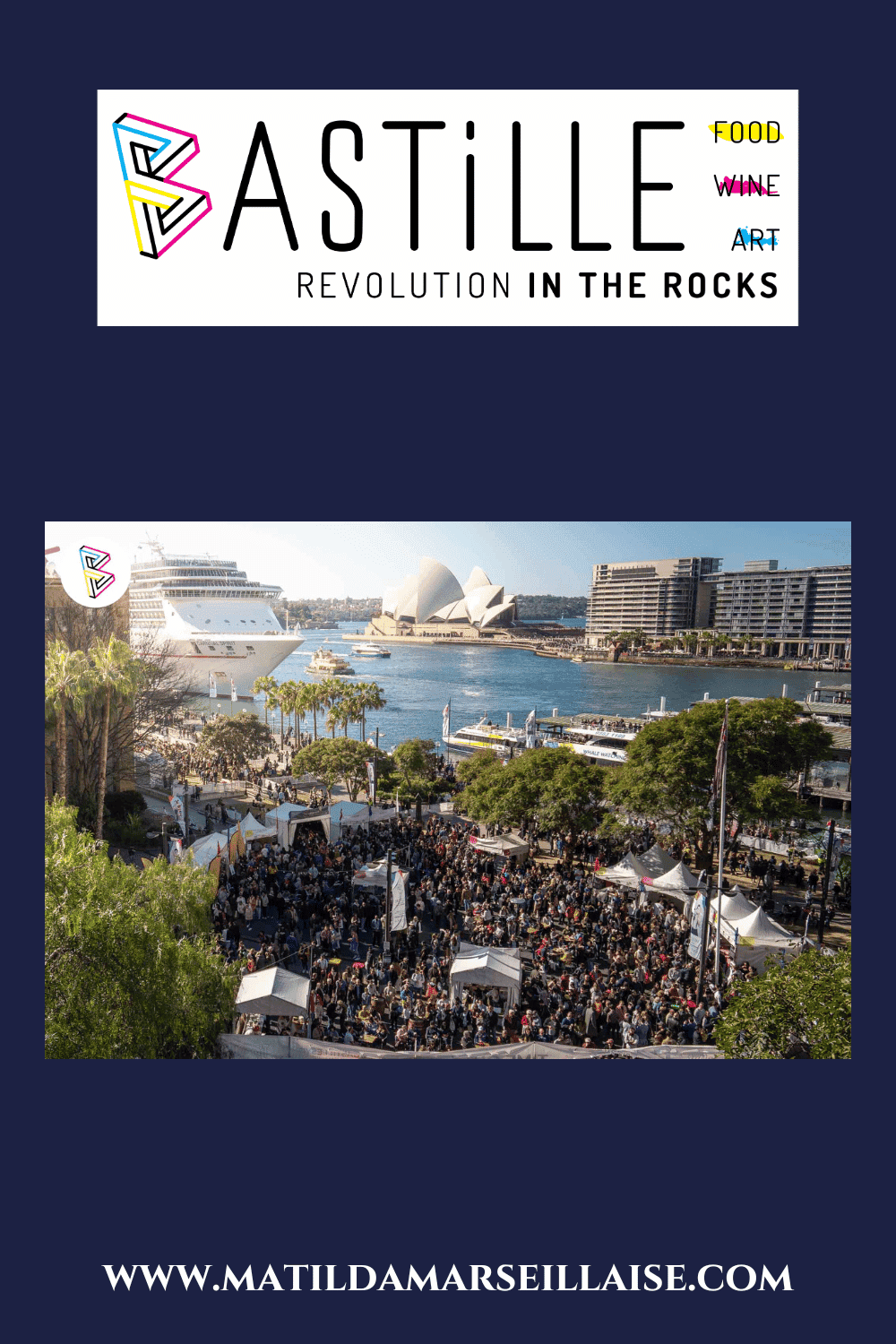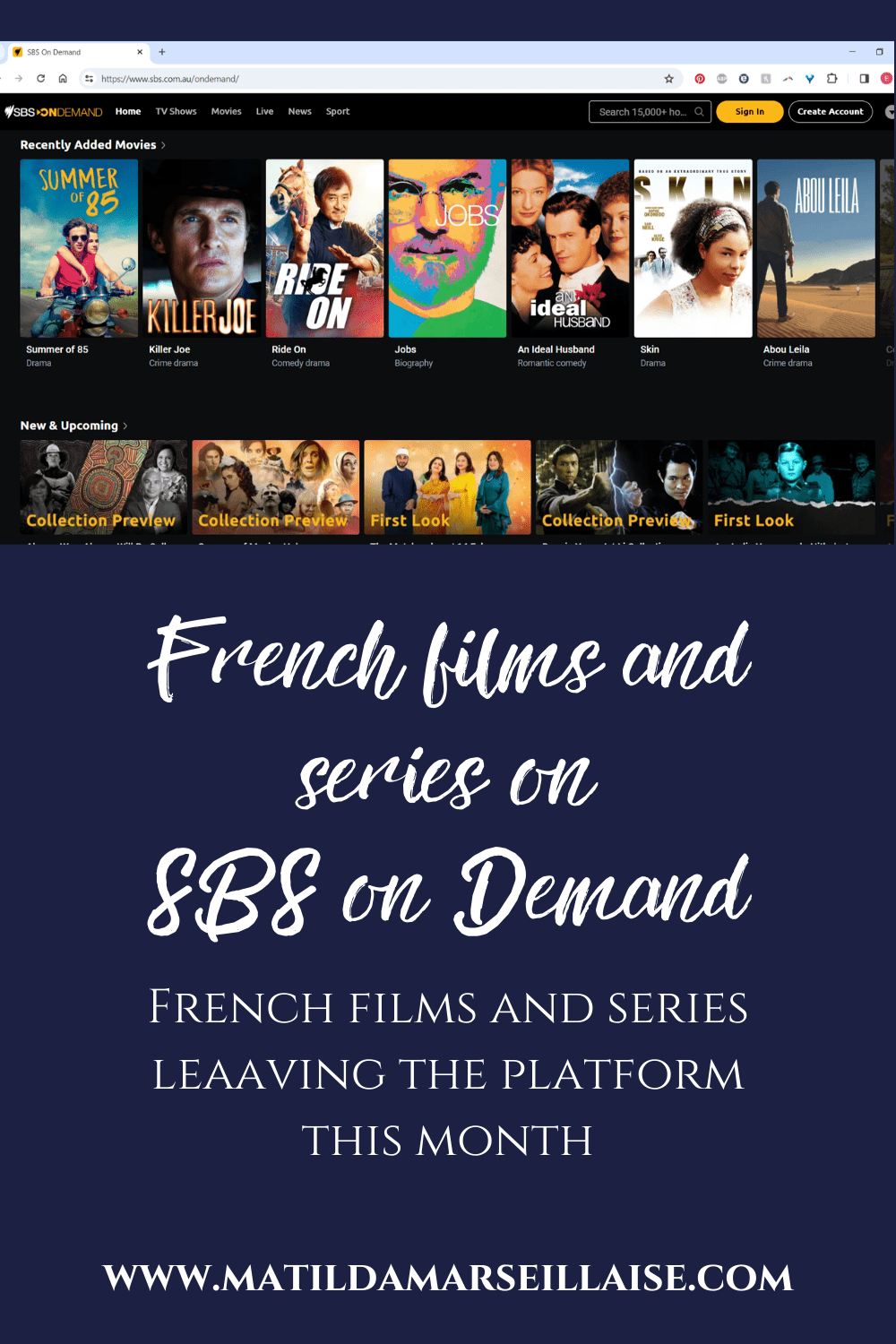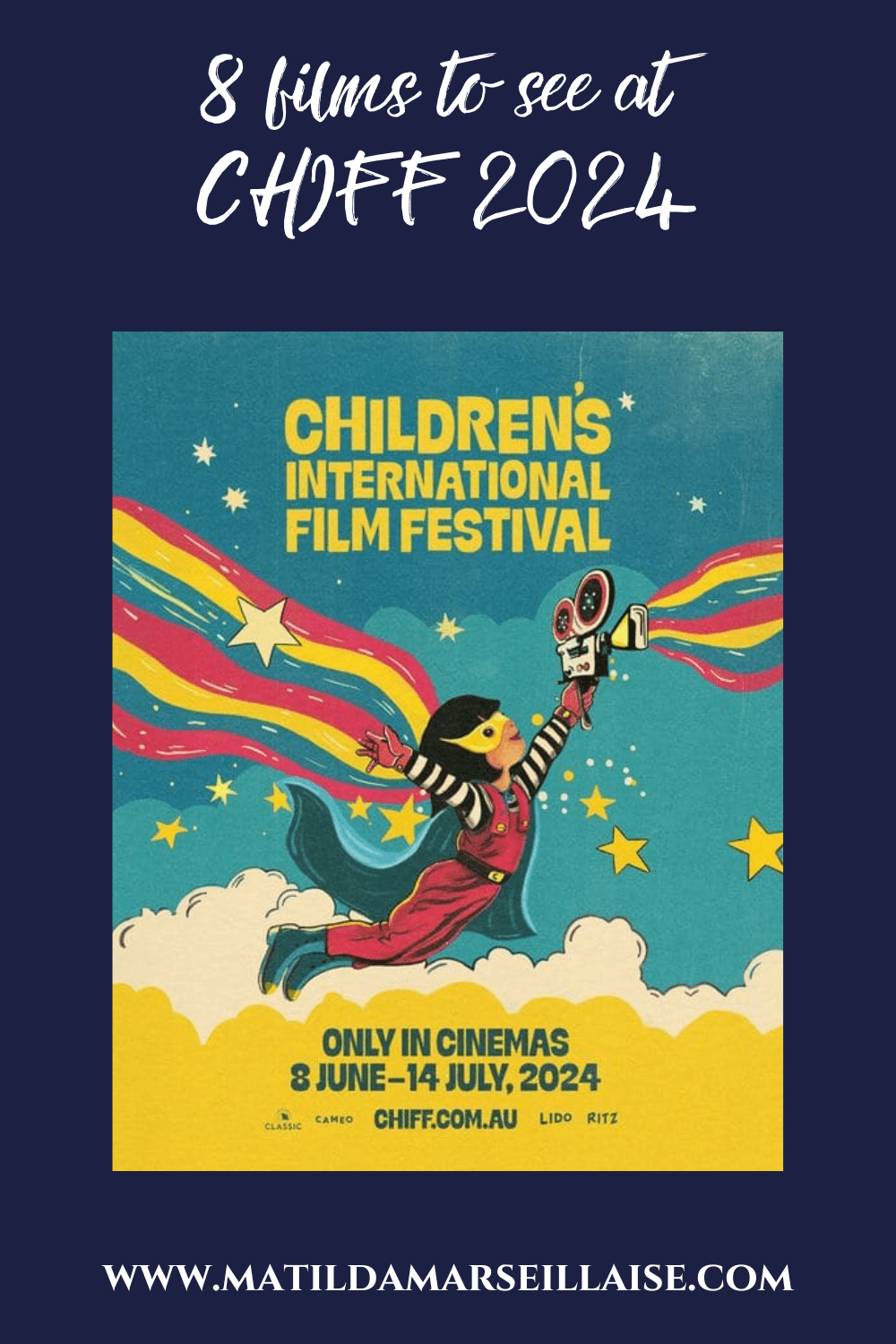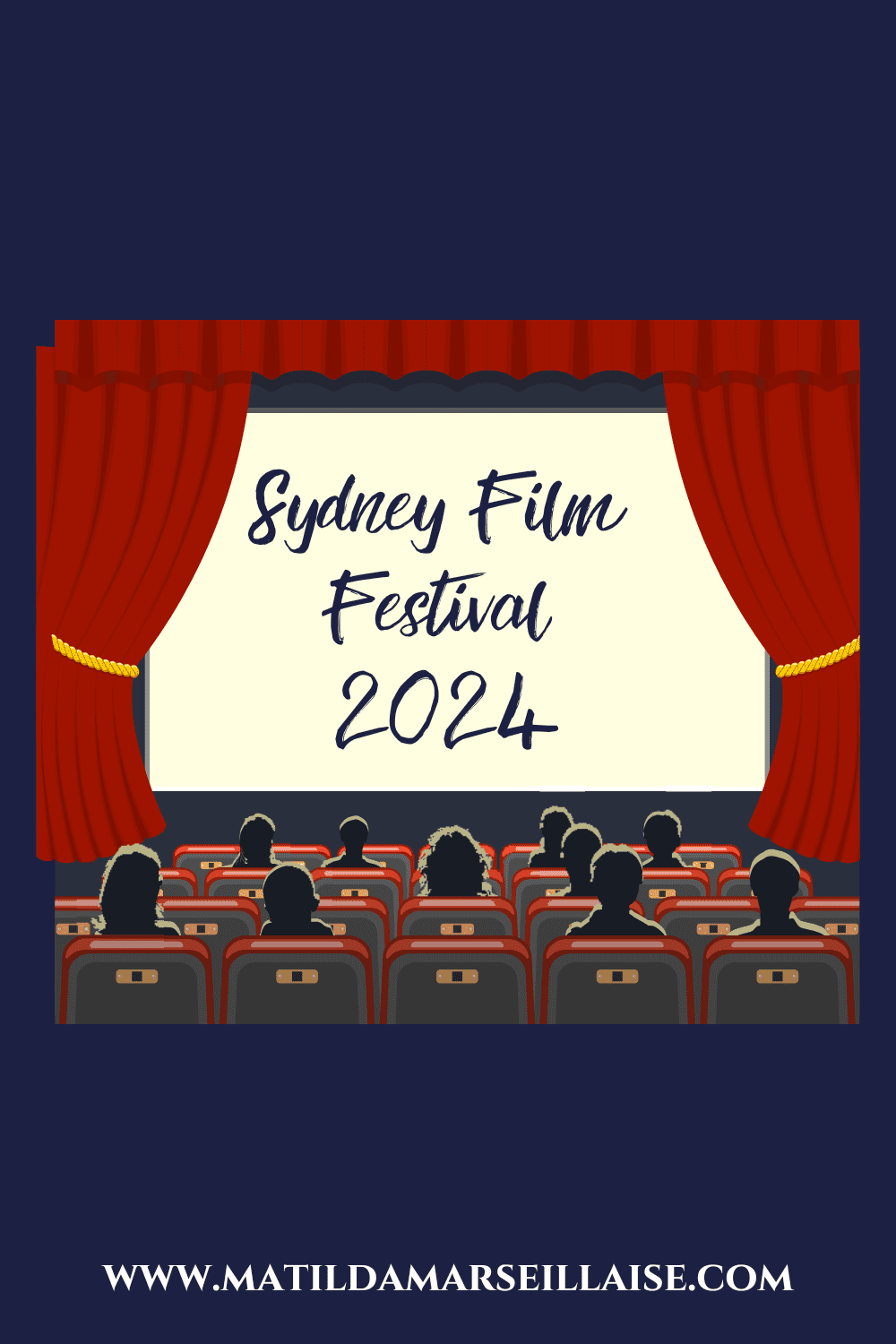Recently I had a chat with Australian film-makers Annie Stiven and Les McLaren, who are behind the film “Life is a very strange thing” which is only available for single screenings at cinemas by committing in advance via the website Demand Film. All screenings are listed at the conclusion of this article.

What was the original idea behind making the film?
Annie: It actually happened by accident. We were filming another – we had started another film about tourism and we were up in the area and we knew Fred lived in Bordeaux and we just decided to go and visit him and when we visited, he was living alone and he had been through quite significant changes in his life. He was in the middle of a divorce, his children had left home. He was reviewing his life, he no longer had a high-powered job and so he kind of used us to really review his life. And as he was talking about this, I said to Les “this would make a really interesting film”. So it was completely by accident.
So it wasn’t that you set of to France with the intention of making a film about him or about modern-day France or anything like that.
Annie: Quite the opposite. We had a completely different topic.
Les: One was about tourism and the other was about windfarms.
Annie: Yes, two topics we were also just doing a small job for a friend to see about how French people had responded to living under windfarms. Tourism was the main film.
Les: I will just add in that Frederic and we had a common friend who was in touch with him and who we are in touch with but we had not really had contact with Fred in 35 plus years –
Since you were in Papua New Guinea with him, is that right?
Les: Yes. And it was really the common friend who said “why don’t you, seeing as you’re in the area, call in and see Fred.

And little did you know you’d end up making a film where he’s the protagonist essentially.
Les: Of course with subsequent films over a number of years.
It must be so difficult to cull and work out what makes it and what doesn’t.
Les: You probably find this as a journalist.
True, but I am probably a bit too wordy!
Annie: Every decision is agony, let me tell you!
Les: But can I say that as you wade your way through a vast amount of material – like 130- 140 hours of material we had, and as you start to wittle it down, bit by bit it starts giving you feedback on what’s working, what’s repetitive and so in some ways the task becomes easier the further you go.
You would start to get a feel for what it starts looking like and what would fit with that and what wouldn’t.
Les: I guess the other thing is that you discover things as you go along. Certainly at the beginning we had no idea that that was how the film would end up.

Would you say it is a film about Frederic and his life and his daily existence and his past or would you say it is more general and it is about living in France?
Les: I think you’ve said it very well. I think it’s both. Initially, we thought it was going to be about Frederic and his life and his past and what an interesting story it has been. What an unlikely story it has been but the more we went, we discovered things about the family we didn’t know. The Colonial Governor in Cambodia in his grandfather and his father’s work… we didn’t know about his niece who was in FEMEN. And of course things pop up in front of you like the rise of Marine LePen and the attacks in Paris so unwittingly it started to reveal itself as being a bigger story so Frederic and his family become the vehicle through which we start looking at 4 generations of change from the colonial era to the present.
Annie: And we didn’t even know if we could get hold of any of that archive because in the beginning we had very few photographs. We then began to hear a story that there was footage from Cambodia but nobody knew where it was. So that actually happened quite late in the piece and because it was an unfunded film, we really couldn’t afford to pay for archives. So without that, we were very limited so that was an incredible find and of course, it took on mythological proportions because we kept hearing about this footage but nobody could find it and it became incredibly frustrating. And then of course, when it was found, ooh that was something!

Les: We were hearing stories of this family footage that Frederic thought he had seen as a child of elephants in Indo-China unfurling the tricola as the dignatories walked past so that seemed quite wonderful. We haven’t found that shot yet. Maybe it happened.
I’m quite surprised it’s not sitting somewhere in Frederic’s apartment because he does seem to have an eclectic mix of things, it could be there hidden somewhere.
Les: That’s absolutely possible.
So you went to France making another film and then decided –
We thought we were making a film about Frederic and his life and his back-story and we discovered the other dimensions of the story laid upon it and then things pop up. The man in the brocante for example
With his hatred of Charles de Gaulle! You touched on post-terror France quite late in the piece. Is that because you didn’t want it to be too much of a focus?
Annie: I think so. We debated that. Look it was quite a significant event in Marion’s life and of course for Frederic as well. He didn’t really want to talk about it very much and we didn’t want to make it any more prominent in the narrative than it is already. There was a lot of thought that went into that about how you position it because you don’t want it to just find a place just by a couple of incidents like that but nevertheless it is quite important in the political landscape of France.

It has changed the way they live. As much as they say they wouldn’t let it change the way they live, it would have had to on some level.
Les: Aboslutely.
Annie: Absolutely. One has to always be careful with this kind of material but we thought we had to mention it because it happened in that period.
Les: Structurally, I think it works better in the end if we have managed to create a sense of quotidian life and just the things that happen and the things that people do which is then ruptured by something. That was the narrative aim.
I think the media does enough of the dramatization of the post-terror world. Every time September 11 comes around there’s yet another documentary on the TV. It’s terrible what happened but we all know what happened. The media is very good/or bad at putting that in our faces. To sit down and watch a whole film where that was the focus would be a completely different film.
Les: It’s a different task. I think that the journalist Xavier tells it in a useful way where he says “it’s very ramose at the moment. We’ve lost our spark and our drive and we need to get that back”. In other words we all want to have a normal life and you do try to get on with daily life. Marion says something like that as well.
It’s like any grieving process as well.
Les: Yes. And it is interesting that towards the end of the editing process, the second attack occurred on the Champs Elysees and they put bullet holes in the front door of Marion’s office. So it’s real. It’s tangible for many people.

You mentioned before that you are self-funded. How do you manage to do such a project.
Les: What it means is we had to pay for everything ourselves. We paid for our own trips. Fortunately we could stay with Frederic when we were over there but we had to buy the equipment ourselves and the filming and the editing and feed ourselves. Look it was a very extravagant hobby making the film. That’s one way of thinking of it. That’s what we do. We make films and this just became bigger than we expected and more demanding of more resources time included.
Was that the first time you had spent so long in France?
Les: I should say. We did the first trip and then we didn’t go back for a year or so until Fred visited one of his daughters who was here and then we did a little bit more filming and that triggered the idea to go back and engage with the story fully. There were three more filming trips back to France and two to Cambodia.
So who would you say the film is for?
Les: We don’t know. You’re asking the wrong person, Matilda. We wouldn’t have a clue!
Annie: Francophiles?
That would be the obvious one.
Les: But we like to think it’s more than that. We’d like to think it’s more than about wine and cheese and isn’t France lovely. It’s a portrait of a country seen through a family across four generations. It’s also about daily life. See we come from the background of making observational, social films and ethnography – looking at the way people live and trying to understand the cultural setting of people’s lives. That’s what we’ve done in Papua New Guinea for example. In a way this film was an extension of that.
Who’s it for? It’s hard to say. We’ve tried to make this film as accessible as possible. There’s a bit of humour in it. We’ve never used music in such a story-telling way like that. Just to try to make it accessible. And the response has been very, very favourable from francophiles but also a number of cinephiles like it because it is playing with different approaches to editing and montage. It’s not an observational film per se. It’s not an information film. We like to think it’s using the potential of cinema in the way it tells the story.
Annie: It does make it very hard because films today are usually issue based or are about famous people. Or it’s a series like “Go back to where you came from” or any of the series that run. So it’s very difficult. You’re in the margins when you’re making a film about somebody who isn’t famous and is not issue based.
Les: So behind your question is the other issue. We can have an idea of who it is for but then there is an entire apparatus of distribution and promotion that has to be harnessed for it to get anywhere. And we’re novices at that. It’s been quite a challenge organising these screenings.
Andrew McGregor from the French Studies program at University of Melbourne will host the Melbourne screenings and the Q&As. The third audience we weren’t expecting was that French academics have responded really well.
Annie: We partly thought this film isn’t serious enough for French academics because it is quite a light film. Academics have responded well.
Yes, you’re doing the screenings through OnDemand so how does that work?
Les: It’s a fairly recent system that’s only been around for a couple of years here and overseas and it’s purpose is to provide or support community access to cinemas. It acts as middle man, if you like, between community groups and the cinema chains, such that any community group can nominate a film that they want to see at a particular cinema at a certain time and as long as they have pre-sale reserve enough seats two weeks before the event it goes ahead. Otherwise, it doesn’t and no-one loses anything other than the effort of trying. So they have a back-catalogue of films that you could – if your bowling club wanted to see “My Fair Lady” again or something like that – you could do it. As long as it’s not a peak commercial time of Friday or Saturday night. It’s quite a fine idea. It’s a way for small, independent producers like us to get access to the big screen without formal distribution contract.
You said you’ve already had some favourable feedback. Is that from the Sydney screenings?
Les: We’ve had two in Brisbane. We had a festival screening in Sydney last year and we’ve had three screenings in Sydney in the last couple of months. We had one in Canberra.
Annie: We got chastised at our screening here over including the brocante.
Les: Yes, a lady came up to us after one of the Sydney screenings. She got really angry that the conservative reactionary views of this old man were even being given oxygen on screen. Whereas for us, it was yet another example of the currents of history under the surface.
You can’t deny that it’s there by simply not giving it screen time. That would be to idealise the way people are.
Les: We weren’t promoting it.
Not at all. You were just showing that it is still there.
Les: And that’s part of the challenge of making observational kinds of documentaries is that sitting there a fly on the wall and trying not to blink you don’t have control over what comes up.
So the “who” was a difficult question to answer, so the “why should people see it” may be equally difficult.
Les: Have a go, Annie!
Annie: No, no! I insist this is yours.
Les: (laughs)
Annie: I’ll begin. When you’re trying to promote this film, I think of people coming out mid-week, cold winter’s night when they could sit at home, cosy and look at something on streaming and I think “why would somebody want to do this?” Why would you go and do this?! Why would you go and see a film that isn’t about someone famous and doesn’t have all the wizardry of – I think it is very difficult but the other thing is quite difficult but the thing I like is that people do make an effort to go out. There is still that idea of going and sharing something. If we all sit at home and just watch, quite wonderful series, etc. I think there is an alternative. You hear about these cinemas in small rural places still going and people making an event of it and I think that’s quite important as well.
Les: Just extending on from that. There is that thing about being in the cinema, which is quite different from being at home. The potential, the opportunity to be transported somewhere into another realm like a good book or a wonderful piece of music. Cinema can do all of that. As filmmakers you aspire to achieve some of that. You like to think that when people do go out they do feel enriched in some way. So in this film, clearly, there are a lot of people who are interested in France and like the whole cultural, romance thing of France, this ticks a few boxes. What’s interesting for us is the number of people who have said “I’ve been to France many times. I love France but I’ve never been into a French home”. So this film actually gives them a sense of being right in close with people on a day to day basis. That was a very rewarding thing to hear.
Yes. Most people go and visit and tick off all the things there are to see and eat and drink all the things there are to eat and drink and then go home.
Les: Yes. I think also that when you travel you tend to see surface a bit. But in this film, partly through chance encounters and things that pop up, you are exposed to the layers of history that underpin what you’re seeing in front of you when you’re somewhere. And you also become aware that those currents of history are actually quite close to the surface whether it’s World War II, whether it’s Algeria, or whether it’s Charles de Gaulle. These things do shape the present. I do think it enhances an understanding and hopefully an appreciation of being somewhere different if you can connect with some of that.
Have Frederic and his family seen the film and what did they think of it?
Les: I seem to be doing all the talking here because I’ve had a bit more interaction with Fred. Let me just say, whilst clearly I am the person behind the camera and you hear me and you witness my story with Frederic in Papua New Guinea, Annie was there too. She has known him since the 70s and her role in shaping the story and in the editing is equal and critical. We are co-film makers but I just happen to be the noisy guy behind the camera.
So in terms of that, I showed a rough cut to the family in France last year, which is probably about 80% of what was the final version. I hadn’t yet shot or included some of the material which we now see. They have been very favourable about it. There’s been no real critique. Frederic couldn’t believe in the first instance “you really want to make a film about me? Okay, if you turn up I’ll believe you! Oh you are here. You must be serious! It was a bit like that.
He thinks that it is a fairly good portrait of his life and faithful to what happened on camera while I was there. I think he appreciates that it is more than just about him.
As much as he was telling people in the street that “they’re making a film about me”. They’re filming my life.
Annie: There’s a lot of that as you would have picked up in the film. Like all families, families are complicated things and there were divisions in the family when mother and father divorced. When we showed the film, there were people in the room who hadn’t seen each other in a long time. So that was pretty interesting.
Les: Like in any family – there is a scene that we took out actually that describes that Frederic’s parents divorced when he was about 6 and he was brought up by his mother and sisters. By the time he was teenaged, he became a bit of a tearaway.
Which is when the father said “you’re coming with me”.
Les: Basically the mother called the father and said “you’ve got to do something or he will be in gaol. And it just so happened that the father was about to do a trip to Papua New Guinea and Frederic came with him and stayed.
Annie: But at the viewing, people who hadn’t seen each other since that period were in the same room from the opposite sides.
Les: from the opposite sides of the family. It was a coming together in a way and it enabled that after all of the bother.
Annie: All film-makers go through this stressful showing their film to those that are involved. You never know. It’s always a very tricky thing but I think it’s kind of worked out.
No one said “Take that scene out. I don’t want to be in there”.
Annie: No. In the past we’ve had lots of wranglings and moral arguments etc. Particularly –
Les: On other projects you mean
Annie. Yes, on other projects. When you are dealing with people who are much less powerful than yourself, you have these wranglings about what you include. Any filmmaker has these dilemmas. A little different with a family like this but there are always sensitivities. You do have to be careful.
Les: And faithful.
Annie: To give him his credit. He was willing to expose himself. You have to have a pretty thick skin to expose yourself in that way.
Les: There are various words you could use. That’s one but you could also say there’s a generosity to allow that to happen and quite a bit of trust.
Annie: And ego!
And ego! There’s definitely quite a lot of ego!
Les: You noticed the ego, did you? (laughs)
That definitely came through.
Les: It’s interesting. People who are more accustomed to France tend to pick that up more readily than others. There’s a certain type of Frenchman that Frederic exhibits.
You can see “Life is a very strange thing” at various screenings around the country (Brisbane and Sydney have already passed) by pre-purchasing your ticket (and ensuring they have the required minimum number of viewers) at Demand Film.
29 August: Cinema Nova, Carlton MELBOURNE
16 September: Palace Nova, ADELAIDE
17 September: Event Cinemas Innaloo, Churchlands PERTH
If you have missed a screening in your city or you just want to see it again, Life is a Strange Thing will also be getting a DVD release in October via Ronin Films.





